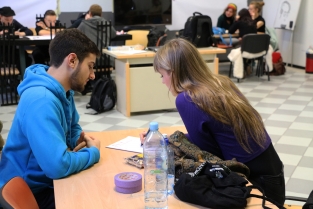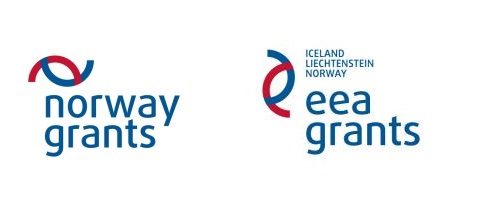2015 – 2014

About
Using the University of Nova Gorica hometown, the bi-national twin-city Nova Gorica/Gorica, as a topical backdrop for this intensive programme, student participants from Norway, Portugal and Slovenia will through production of new audiovisual and multimedia artistic worksresearch cultural comparative aspects of »balancing life on the border«. This will be treated through the prism of either gender equality or work-life relationship respectively. The 2014 omnibus of five short (animated, fiction and documentary) films by five internationally mixed student groups.
The 2014 Omnibus
The 2015 Omnibus
Participating Students:
Univerza v Novi Gorici/Slovenia – Damir Grbanović, Mery Gobec, Jaka Žilavec, Katja Petelin, Tine Posarelli, Saša Mrak, Ana Bahor, Vida Habjanič, Neva Kumelj, Špela Lutman, Mateja Nikolič, Sara Stankovič, Noemi Zonta, Benjamin Friškovec, Peter Mišic, Matej Turk, Daša Sirk, Ester Ivakić and Christian Meixner as exchange student from Graz University of Technology
Westerdals Oslo School of Arts, Communication and Technology/ Norway – Ole Martin Wølner, Bård Føsker, Marta Bartczak, Ninni Lucia Dahle Nyhus, Ellisiv Flack
ESAD.CR – Escola Superior de Artes e Design de Caldas da Rainha / Portugal Rafael Oliveira Marques, Sara Carolina Guerra Correia, Eduardo Miguel Vilarinho Caramujo, João Pedro Chaves Marques, Raul Isaac Pereira Penha
Mentors and Coordination Support
Univerza v Novi Gorici Anja Medved, Rene Rusjan, Tina Smrekar Westerdals Oslo School of Arts, Communication and Technology/ Frode Søbstad ESAD.CR / Fernando Galrito
Three universities with at least 18 students in a 2 two-week set of practical workshops (one in 2014, one in 2015) with a blended phase before and after the f2f contact (online research and get-to-know, postproduction, in a dedicated LMS environment at //moodle-vsu.ung.si/) wil be using and further developing the special »mobility toolbox kit« developed by University of Nova Gorica and its international partners in the ADRIART.net and award-winning HiLoVv projects. A public project websitewill be available at //vsu.ung.si/bobbefore the start of the project, and widely disseminated in relevant target groups (see below). The website will be gradually evolving thrughout the project’s phases.
The subject in the workshop is focused on the border(s) between film, animation and contemporary art, and is also reflected in the research and (art) production techniques to be academically explored in the BoB – BALANCING ON THE BORDER intensive programme. The topics that are going to be ushered along by local mentors as well as discovered through ex-ante and on-site research by incoming academic staff and students, are going to (in terms of an academic task) treat either topics related to gender equalityor to work-life balance respectively, as they are connected or spring from different boarder-related phenomena, e.g. trans-border migration for work, culturally mixed marriages, language barriers, cultural and historical links and cleavages, political micro-geographical and territorial issues, naturally as well as architecturally manifest border phenomena etc.
The Coordinating partner is bringing in the inventor of the »docu-fiction« genre, the Serbian legendary master director Želimir Žilnik; one of most prominent Slovenian female film directors Jasna Hribernikand a prodigy editor (and mentor, also at the Slovenian national TV) Miha Hvale. Westerdals School of Communication from Norway will bring producer and director Frode Søbstad, while the Portuguese Fernando Galrito of IPL ESAD.CR directs award-winning animated documentaries and interdisciplinary workshops and is the artistic director of the globally acclaimed Monstra Lisbon Animated Film Festival.
Main expected outputs of the project are
– at least 3 group student productions (depending on the student’s choices in the research phases either in the realms of animation, film, installation or a combination of any of those). These outputs will be
– 1 public screening on site (works publicly presented in their progress phase at the end of the f2f academic stage in Nova Gorica), with later
– at least 4 off-site screenings of (selected finished) works at partner universities (Ljubljana, Oslo, Caldas da Rainha) and other locations (secondary screenings at partner networks, festivals)
– Intensive web dissemination of the project process and results (feature presentations at “ePlatform” of //vsu.ung.si, facebook page of the promoter fb Visoka šola za umetnost UNG, widely international facebook page fb Adriart.net, twitter account @solamoskupnost, other social media)
The primary target groups of the programme include students, teachers and mentors in the abovenamed academic (and artistic, as well as creative-industries!) realms, but also artists, urban sociologists, historians, and related (interdisciplinary oriented) scholars. The secondary target groups spread out onto all temporary as well as stationary urban inhabitants and “users” of the twin border town Nova Gorica/Gorica, as well as the regional and trans-regional (global) public, reached via the distribution of the produced works. The main activities of the programme will revolve around the gradual (didactically dissected and reflected) process of production, supported by analytic remote (ICT-based) and on-site research (urban sociology, history, transcultural studies) as well as including manifold interactions with local inhabitants and other “users”and “non-users”of the border, in its many manifest and non-manifest (psychological, sociological etc.) forms.
The main learning outcomes envision students to:
(specifically)
– learn to research and produce in realistic and site-specific media production setting
– master media (film, video, contemporary art) production in blended (remotely connected) settings
– develop site-specific preproduction, production and postproduction methods and work-styles in the realm of media production
– develop a critical and (post)modern sociological and psychological perspective on cultural heritage, architecture and urbanism
Preview of cliping map of the project (in Slovene and English):

The BoB – Balancing on the Border project/programme is funded by the EEA Grants and Norway Grants. 
